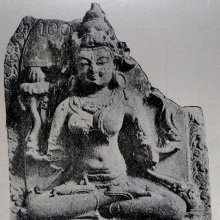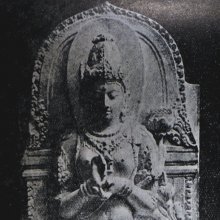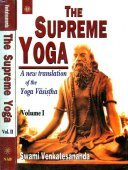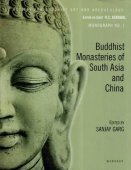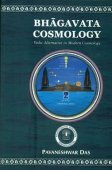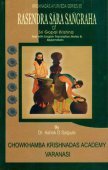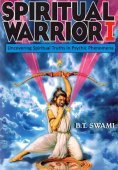Scripture: 1 definition
Introduction:
Scripture means something in Hinduism, Sanskrit. If you want to know the exact meaning, history, etymology or English translation of this term then check out the descriptions on this page. Add your comment or reference to a book if you want to contribute to this summary article.
Images (photo gallery)
(+12 more images available)
In Hinduism
Yoga (school of philosophy)
Source: ORA: Amanaska (king of all yogas): A Critical Edition and Annotated Translation by Jason BirchScriptures are denoted by the Sanskrit term Grantha, according to the 17th century Yogacintāmaṇi by Śivānanda: a large compilation of roughly 3423 verses dealing with the various methods of (Haṭha) Yoga and Aṣṭāṅgayoga.—Accordingly, “Having bowed to the venerable Vyāsa; the ascetic, Śaṅkara, [who is] the guru of the world; [his own] guru, the venerable Rāmacandra, whose lotus feet are intense bliss, and all the lords of yoga, the ascetic Śivānanda has written clearly the Yogacintāmaṇi [which] is derived from an ocean of various scriptures (nānā-grantha) and is capable of [conveying] their entire meaning”.

Yoga is originally considered a branch of Hindu philosophy (astika), but both ancient and modern Yoga combine the physical, mental and spiritual. Yoga teaches various physical techniques also known as āsanas (postures), used for various purposes (eg., meditation, contemplation, relaxation).
See also (Relevant definitions)
Ends with: Hindu Scripture, Tantric scripture.
Full-text (+3416): Shastra, Agama, Shruti, Aksharasamsthana, Shruta, Smriti, Pramana, Yathashastra, Pariyattidhara, Pravacana, Pali, Likhita, Amnaya, Veda, Mahapurusha, Pustaka, Pancaratra, Bhanaka, Shrutajnana, Siddhanta.
Relevant text
Search found 330 books and stories containing Scripture; (plurals include: Scriptures). You can also click to the full overview containing English textual excerpts. Below are direct links for the most relevant articles:
Prasthanatrayi Swaminarayan Bhashyam (Study) (by Sadhu Gyanananddas)
4.4k. Unknowable Becomes Knowable < [Chapter 2 - Analysis on the Basis Of Epistemology]
4.4i. A Tribute to Veda Vyāsa < [Chapter 2 - Analysis on the Basis Of Epistemology]
4.8. Basic Philosophy of Svāminārāyaṇa < [Chapter 1 - Introduction]
The Tattvasangraha [with commentary] (by Ganganatha Jha)
Verse 2774 < [Chapter 24b - Arguments against the reliability of the Veda (the Revealed Word)]
Verse 3213-3214 < [Chapter 26 - Examination of the ‘Person of Super-normal Vision’]
Verse 2306-2309 < [Chapter 24a - The case for the reliability of the Veda (the Revealed Word)]
Buddha-nature (as Depicted in the Lankavatara-sutra) (by Nguyen Dac Sy)
Introduction (Hīnayāna and Hindu philosophy) < [Chapter 3 - The Laṅkāvatārasūtra and Hindu Philosophy]
Summary (the Tathagatagarbha literature) < [Chapter 2 - The Buddha-Nature in the Tathāgatagarbha Literature]
The Concept of Buddha-nature < [Introduction]
Manusmriti with the Commentary of Medhatithi (by Ganganatha Jha)
Verse 2.16 < [Section V - Persons entitled to the Performance of Dharma]
Verse 4.15 < [Section III - The Observances of the Accomplished Student]
Verse 12.1 < [Section I - Question]
A History of Indian Philosophy Volume 4 (by Surendranath Dasgupta)
Part 4 - Madhva’s interpretation of Brahma-sūtra I. 1. 3-4 < [Chapter XXVI - Madhva’s Interpretation of the Brahma-sūtras]
Part 7 - Testimony < [Chapter XXVIII - Madhva Logic]
Part 12 - Liberation (mokṣa) < [Chapter XXIX-XXX - Controversy Between the Dualists and the Monists]
Bhakti-rasamrta-sindhu (by Śrīla Rūpa Gosvāmī)
Verse 1.2.206 < [Part 2 - Devotional Service in Practice (sādhana-bhakti)]
Verse 2.1.100 < [Part 1 - Ecstatic Excitants (vibhāva)]
Verse 1.2.292 < [Part 2 - Devotional Service in Practice (sādhana-bhakti)]
Related products
(+12 more products available)
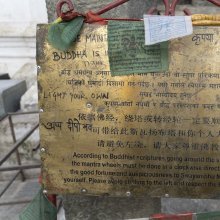
.jpg)

